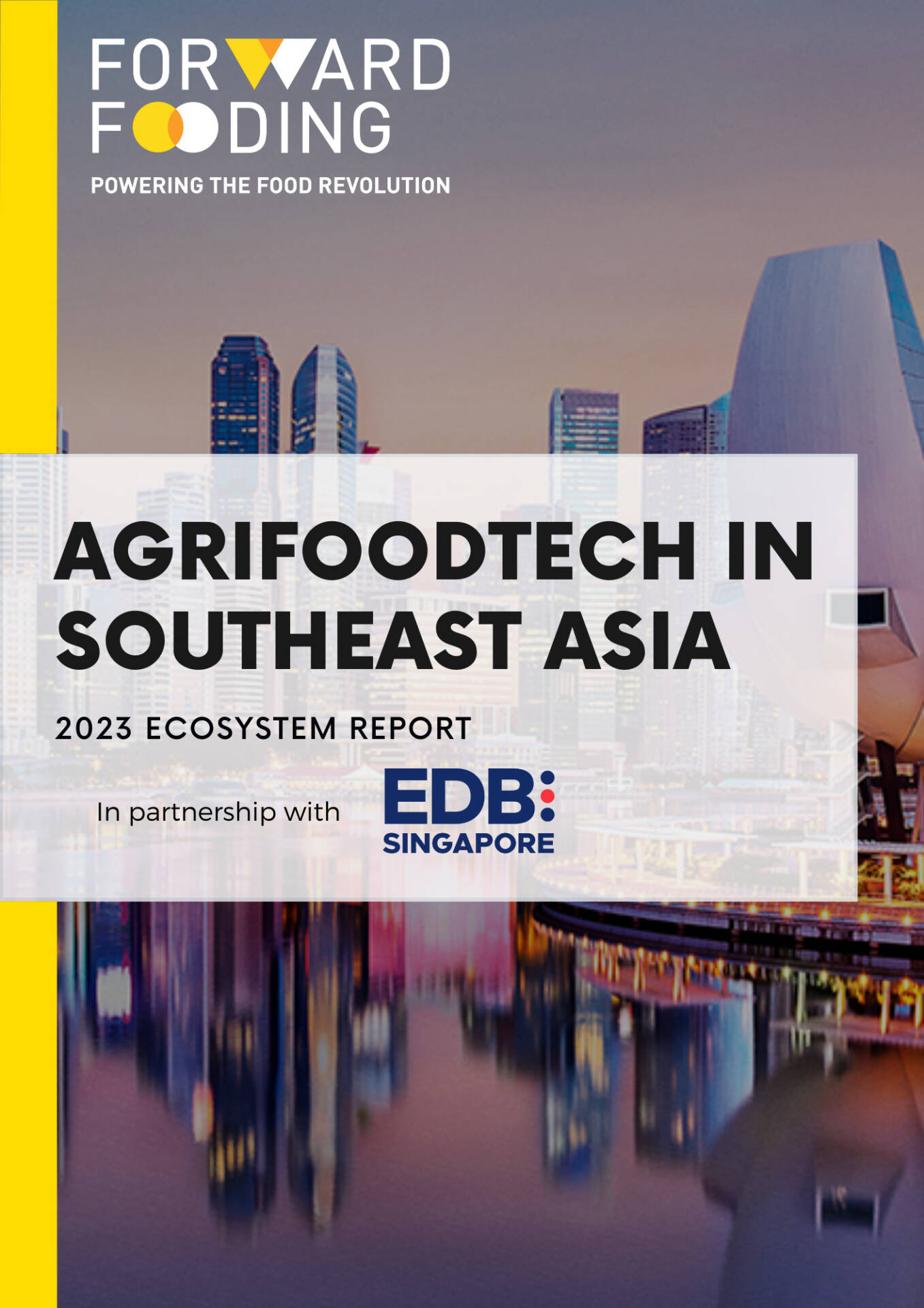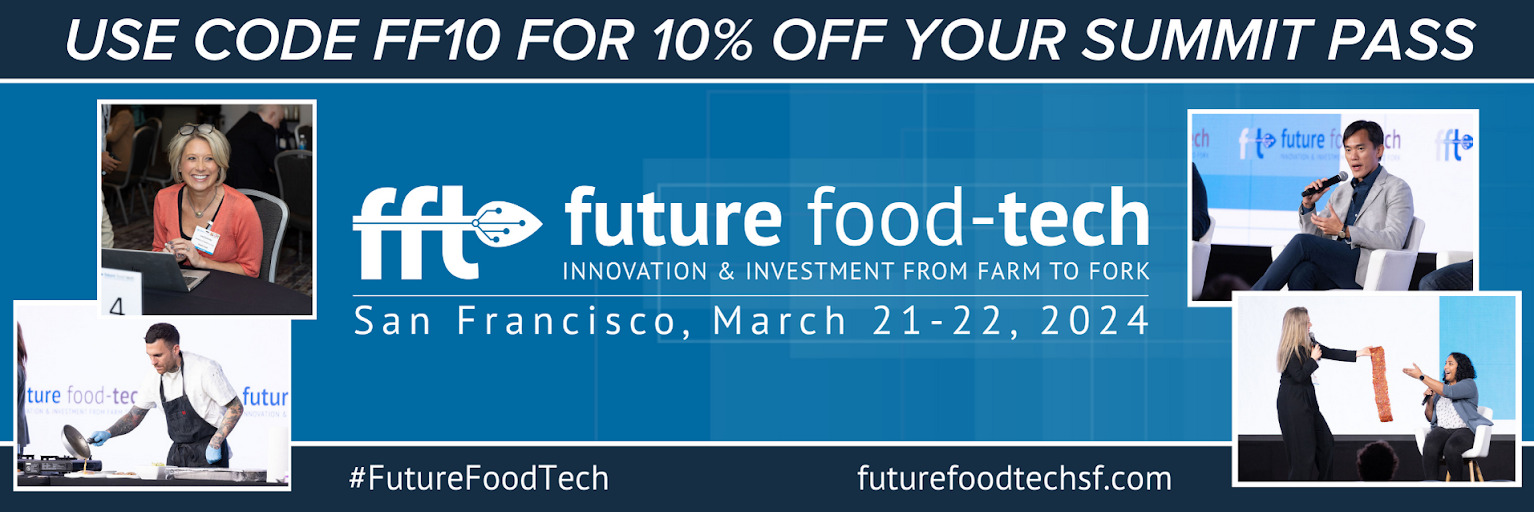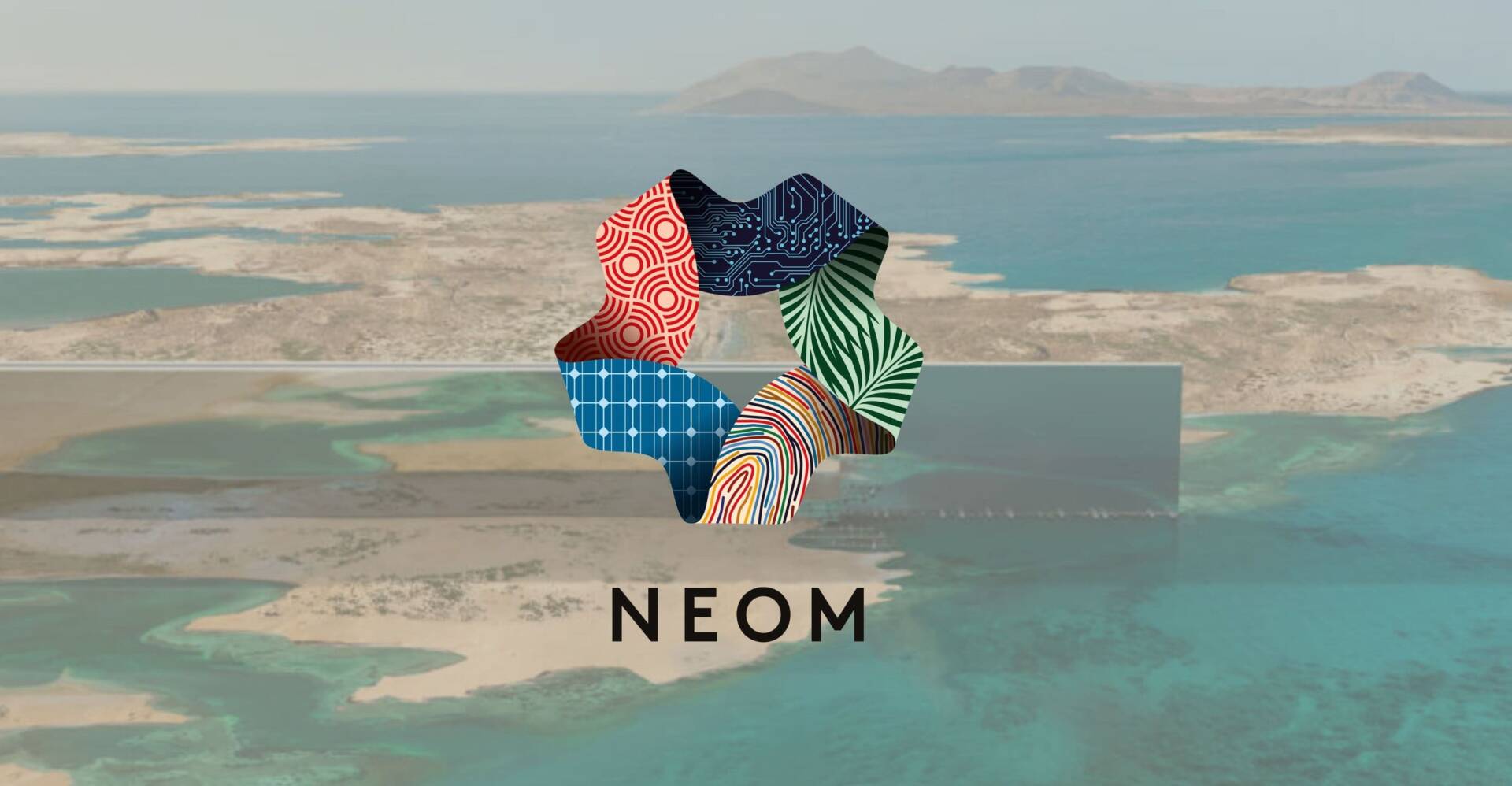FORWARD FOODING
THE BLOG
Online culinary experiences give the hospitality industry a tech makeover

Technology can provide an alternative to traditional hospitality in light of social distancing norms
By Kishan Vasani, CEO & Founder, Spoonshot
Eating out was one of those activities we took for granted in the pre-COVID days. Sure, you had to plan and make reservations in advance if you wanted to have a really fancy culinary experience, but it wasn’t a big deal. If one place didn’t work out, you could try others, or just walk into a pub and still have a pretty good time. People went out for the food experiences – to ooh and aah over the presentation, to try out new dishes and cuisines, to spend time with friends and family.
Now, with social distancing the recommended norm and concerns over safety, many of us have chosen to curb our dining out. Instead, we’ve turned to online channels for new food experiences. The food-service sector, for its part, has responded by capitalising on various technology-based solutions to ensure that consumers have access to positive food experiences online.
Spoonshot’s proprietary data points to the growth of online culinary experiences over the last couple of years and expects this trend to hold steady in the year to come.

Source: Spoonshot
This pivot to the virtual space has helped many food-service players stay relevant and in touch with their consumer base despite the lack of face-to-face interactions. While online culinary experiences are not really new (think YouTube tutorials), tech innovation has helped bring them into their own during the pandemic. This move also points to the growing confluence between food and technology even within areas that have traditionally seen only in-person interactions.
Online cooking classes for no skills to pro skills
When lockdowns and stay-at-home orders were the norm, people turned to cooking for comfort. Old, forgotten skills were dusted off and new ones were sought out. And a whole host of experts went virtual to help consumers improve their culinary experiences at home.
Based on Spoonshot’s proprietary data, interest in online cooking classes started to pick up around mid-2019 and skyrocketed in 2020 – by a whopping 1177.5% – over the last 12 months. As restaurants slowly start to reopen, we expect this trend to taper off a bit, but with social distancing dictating the rules, online classes are here to stay. E-learning has rapidly taken over schooling for kids, and so will adult learning.

Source: Spoonshot
Online cooking classes are now available at a range of price points (some, even free) to ensure access for all. Consumers can also choose from a number of formats that best suit them, from self-paced to interactive.
Cooking with the stars
Consumers can take self-paced online cooking classes that start from the very basics and progress to learning complex dishes from celebrity chefs like Gordon Ramsay or Wolfgang Puck through Masterclass.
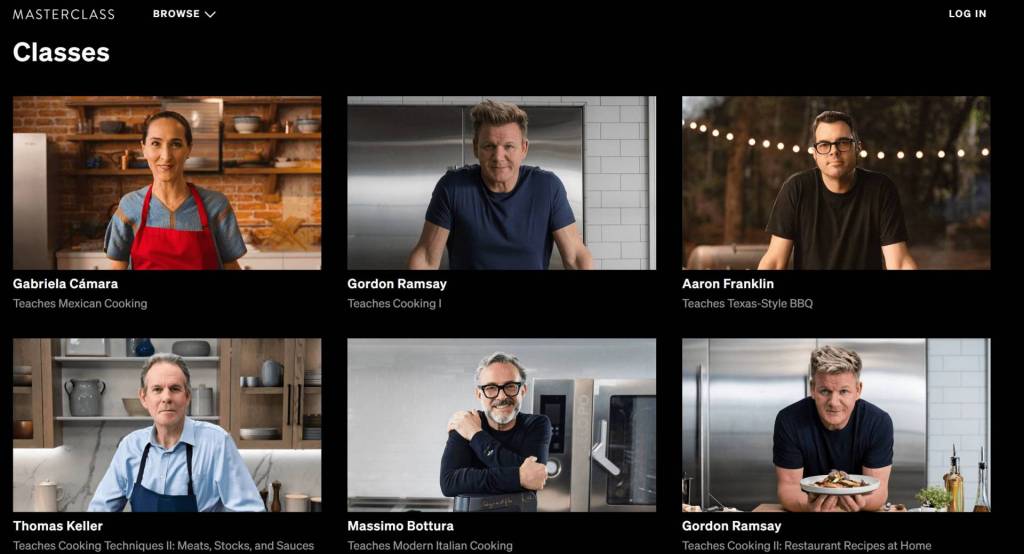
Photo source: Masterclass
For those who want a more personal touch, The Chef & The Dish offers private, one-on-one coaching on making specific dishes through Skype with top chefs from around the globe. These sessions are live and interactive, thereby enhancing the online food experience.

Photo source: The Chef & The Dish
During the quarantine, a number of celebrity chefs took to social media to offer free sessions. Nadiya Hussain, for example, used Instagram to teach viewers how to cook with zero waste by incorporating peels and skins into the dishes.
Back to school with experts
Online universities offer a number of courses as well. Udemy, for example, has over 900 courses related to food and beverage that cover a number of specialised topics, from bread making and cake decorating to wine tasting, sushi making, and healthy cooking. These are pre-recorded, so people can take their time with them, and even get a certificate of completion once finished.
For aspiring professional chefs around the globe, Rouxbe’s online culinary training programme ensures that their education needn’t stop.
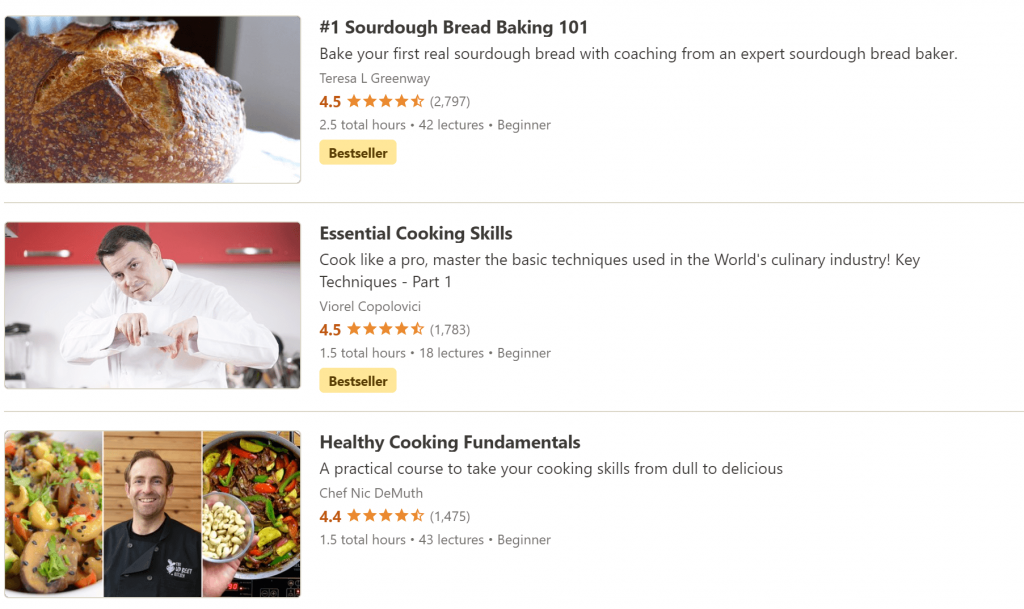
Photo source: Udemy
Fēst offers guided, live video classes from a collective of chefs, bakers, pastry makers, and sommeliers. The classes focus on improving overall skills rather than on specific cooking, so they coach while the customer cooks. The company offers some unique online culinary experiences, such as the option of gifting a class or coming up with a recipe based on what is in one’s fridge.
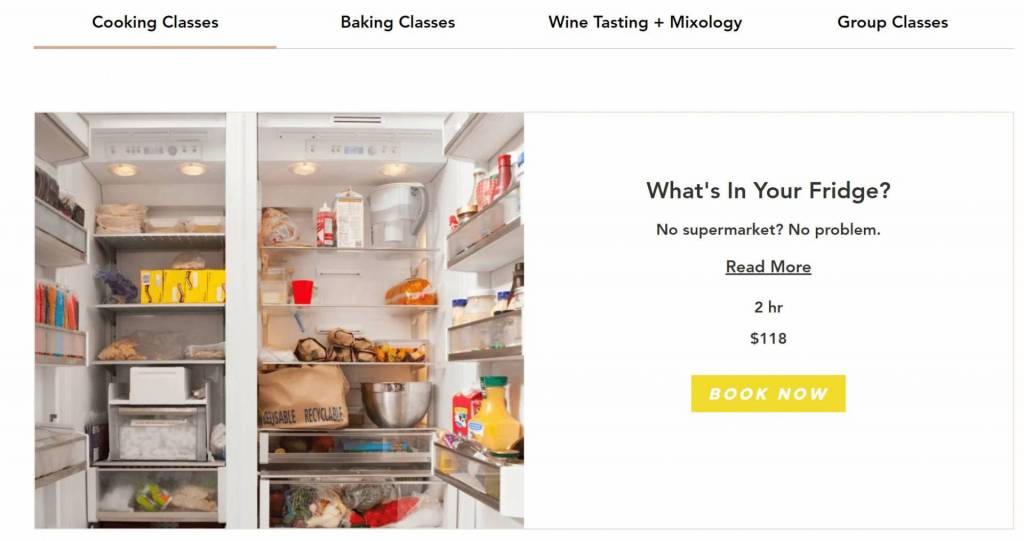
Photo source: Fēst
Virtual Tastings
Tastings are among the most physical and tactile of food experiences, enjoyed in the company of taste experts. With COVID-19 shutting down this option to ensure social distancing, many companies have embraced the concept of online tasting sessions. They have also been refining their offerings so as to ensure a seamless virtual tasting experience at home.
Spoonshot’s data shows how interest in online tastings has shot up since the pandemic started.

Source: Spoonshot
Artisanal chocolate maker Delysia Chocolatier has been conducting regular themed Virtual Chocolate Tastings, shipping out sample chocolates beforehand.

Photo source: Delysia Chocolatier
The Supper Share was launched in March 2020 specifically as a collaborative platform for virtual food and wine experiences. It acts as a “personal concierge service”, connecting consumers to experts to set up virtual tastings and dinner parties.
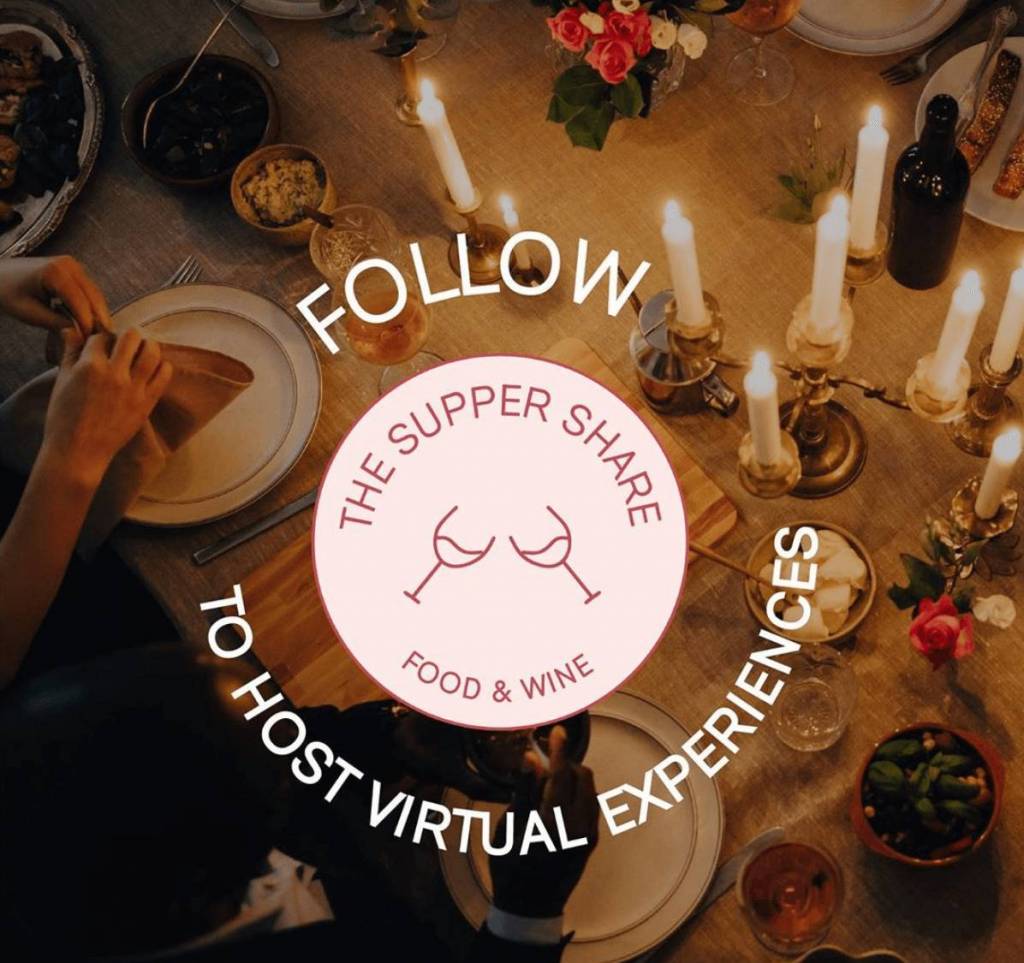
Photo source: The Supper Share
The world in your kitchen
With leisure travel grinding to a halt, many of the activities that go hand-in-hand with it also stopped, especially tasting the local fare. Companies in the travel industry have brought global culinary experiences online to ensure that travel junkies aren’t entirely without their fix.
Airbnb’s in-person cooking experiences have gone virtual and are conducted via Zoom so that hosts don’t lose out completely on revenue. There are over 230 online cooking classes by hosts in over 30 countries.
Devour Tours, which arranges food tours across Europe, offers a number of virtual cooking classes where virtual travellers can learn and interact with food experts of the region.
Eat With, which offers tourists the experience of dining with a chef at their home, has also shifted their culinary experiences online which allow customers to learn new cooking skills from home chefs around the world.

Photo source: Eat With
Spoonshot’s view:
In the coming 12-18 months, we expect to see newer technologies and innovation that will help merge these online culinary experiences with in-person ones. There is significant scope for vertical integration of different services which can really enhance consumer experiences and engagement. For example, bringing together online cooking classes, delivery services, and virtual tastings, can add to consumer appreciation of pandemic-era hospitality.
Spoonshot delivers food & beverage innovation intelligence by leveraging AI and food science. Our insights reveal the future of food through a deep understanding of emerging and evolving consumer and market needs, enabling us to accurately predict trends and uncover innovation opportunities.
At Forward Fooding, we monitor the global food tech landscape using our proprietary data intelligence platform, the FoodTech Data Navigator. To learn more about the FoodTech Data Navigator, the world’s first AgriFoodTech data intelligence platform, visit forwardfooding.com-food-tech-data
Follow us
Sponsored Articles
9 July 2025
Forward Fooding celebrates the selection of 12 pioneering startups for the inaugural pladis Accelerator Programme. From water lily popcorn to sugar-converting enzymes, these innovations represent the future of snacking, addressing obesity, sustainability, and personalized nutrition through cutting-edge food technology.
21 March 2025
Tim Ingmire, VP of Global Innovation & Technology at pladis, discusses how the snacking giant is supporting early-stage startups in foodtech, health, and sustainability through their accelerator program. Learn about their focus on personalized nutrition, functional foods, and future ingredients to bring innovative, delicious products to consumers worldwide.
8 February 2024
Future Food-Tech returns to San Francisco on March 21-22 Over 1,700 food-tech leaders, from CPG brands, retailers, ingredient providers, [...]
1 February 2023
The 4th edition of FoodTech 500 is taking off and we are excited to partner with NEOM for the third consecutive year to support the best international AgriFoodTech entrepreneurs.
10 February 2022
One of the elements we enjoy the most here at Forward Fooding about working with AgriFoodTech startups is being [...]
